Does 15-minute delivery have a future?
The rubble of the ultra-fast delivery market is strewn across across 14th street in Manhattan, New York. About a year ago, storefronts with opaque window coverings and cute names—Buyk, JOKR, Fridge No More, Gorillas—proliferated on the street. Each pledged to deliver groceries and other items in 15 minutes.
Today, only Gorillas remains in business on 14th street.
Fridge No More and Buyk, both based in New York, went out of the business in the same week in March 2022. JOKR, headquartered in Berlin, followed three months later by exiting the US market to focus on growth in Latin America.
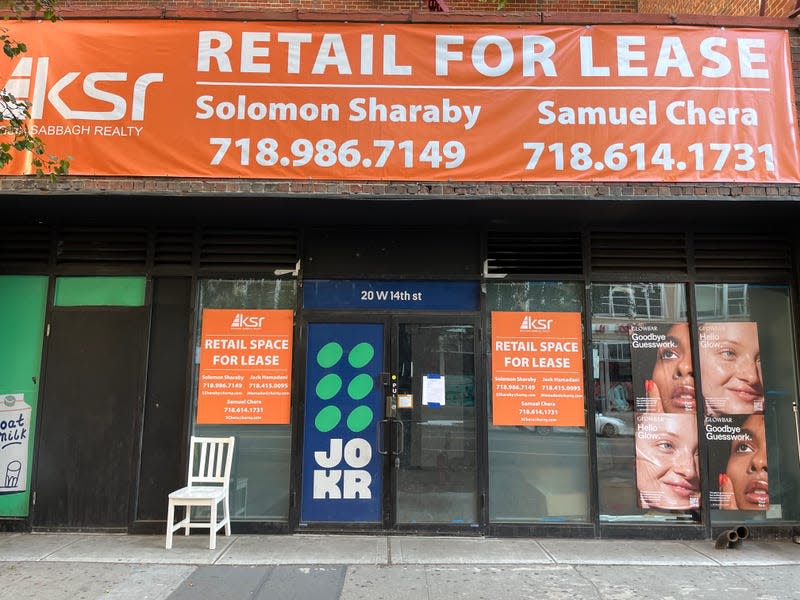
Closed JOKR fulfillment in Chelsea, New York.
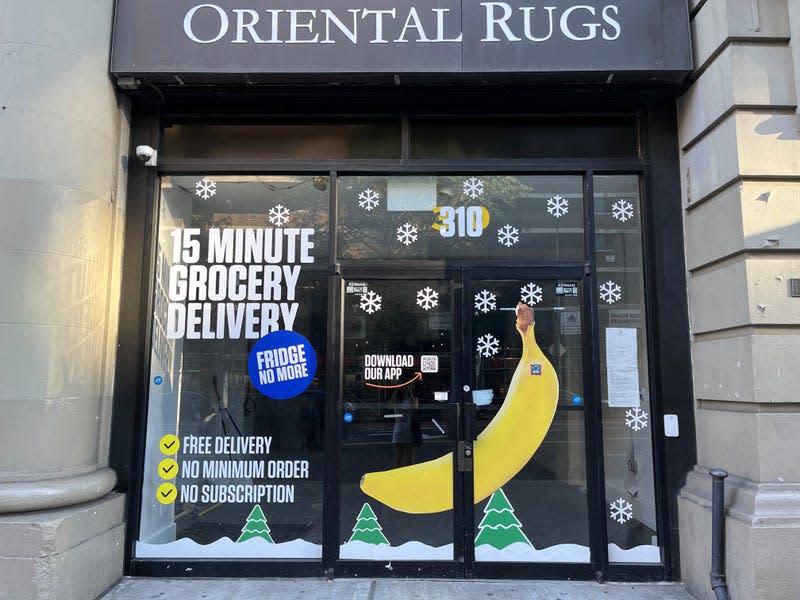
Closed Fridge No More fulfillment near Union Square, Manhattan.
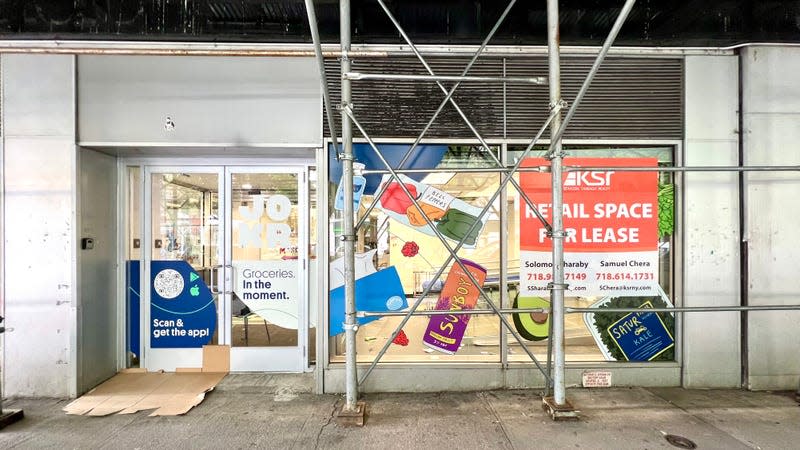
A hastily abandoned JOKR fulfillment center on the Upper West Side.
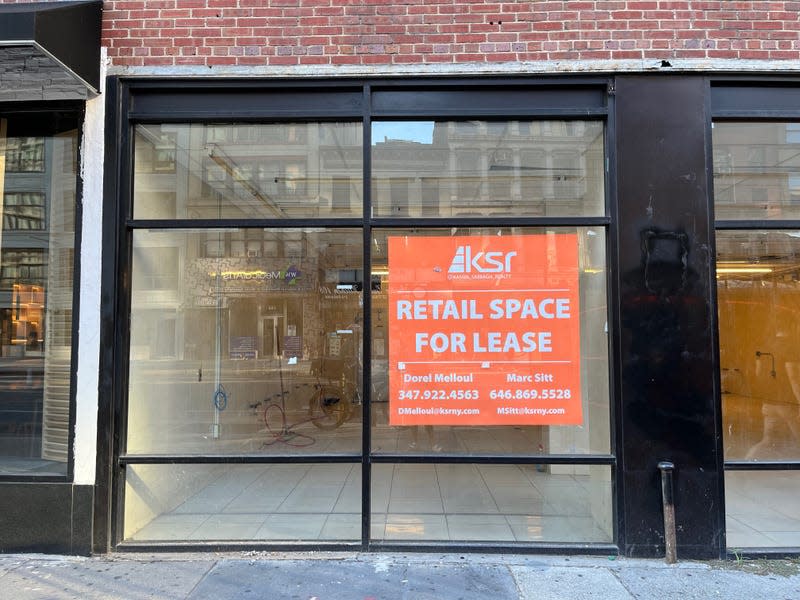
Former Fridge No More location in Chelsea, New York.
The rapid rise and fall of ultra-fast delivery
Venture capitalists invested $28 billion into rapid delivery startups in 2021, more than double the amount in 2019, according to PitchBook. The exuberance in the market allowed these startups to grow big and fast.
But a sustainable business model for ultra-fast delivery remains elusive. The biggest ultra-fast delivery companies will depend on huge order volumes and a shift in consumer shopping habits to achieve profitability. That’s incredibly difficult to achieve in a crowded market that also includes companies like Amazon, Walmart, Instacart, DoorDash, and Uber offering food deliveries.
Solomon Sharaby, a managing director at commercial real estate firm Kassin Sabbagh Realty, worked with JOKR on its one-year expansion to New York. He said it was the fastest he has seen a business with multiple locations in New York City open and close. “The main reason is the amount of competition in the New York market and in the US as a whole,” Sharaby said.
What is the future of 15-minute delivery?
Still, Gorillas, which is valued at $1.3 billion, according to PitchBook, remains in business in New York. To set itself apart from other quick-commerce players, Gorillas, which has about 20 fulfillment centers and 200 stores globally, said it focuses on offering on a range of products not typically distributed by traditional retailers, such as from local bodegas and liquor stores, at competitive prices.
“We’re not a pandemic trend,” Alex Gabriel, head of external and governmental affairs at Gorillas, wrote in an email. He said that consolidation will help Gorillas achieve profitability.
The startup also collaborates with over 25 local community fridges, suggesting that it wants to make nice with the city. Earlier this year, the New York City Council said it wanted tighter regulation with micro-fulfillment centers, having concerns the VC-backed delivery companies, which are placed in urban areas to help fulfill faster delivery, were taking away retail space from small businesses and bodegas.
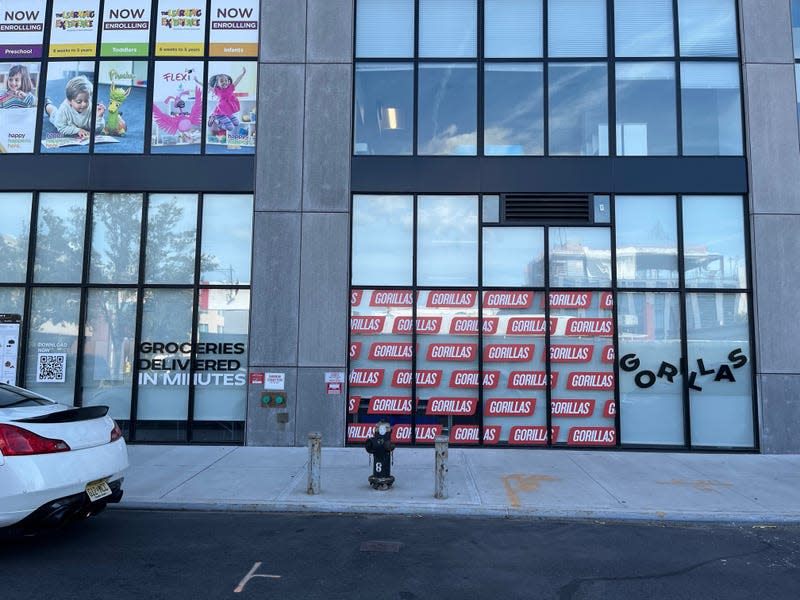
Gorillas fulfillment center, which replaced Buyk, in Bay Ridge, Brooklyn.
In the future, “it will not be unlikely” that Gorillas will offer 15-minute delivery beyond groceries and household essentials, said Gabriel. He added that “emerging tech” could allow Gorillas to offer customers a more personalized experience, such as providing recommendations based on what you have shopped before, both on the time of the day or even your health conditions.


